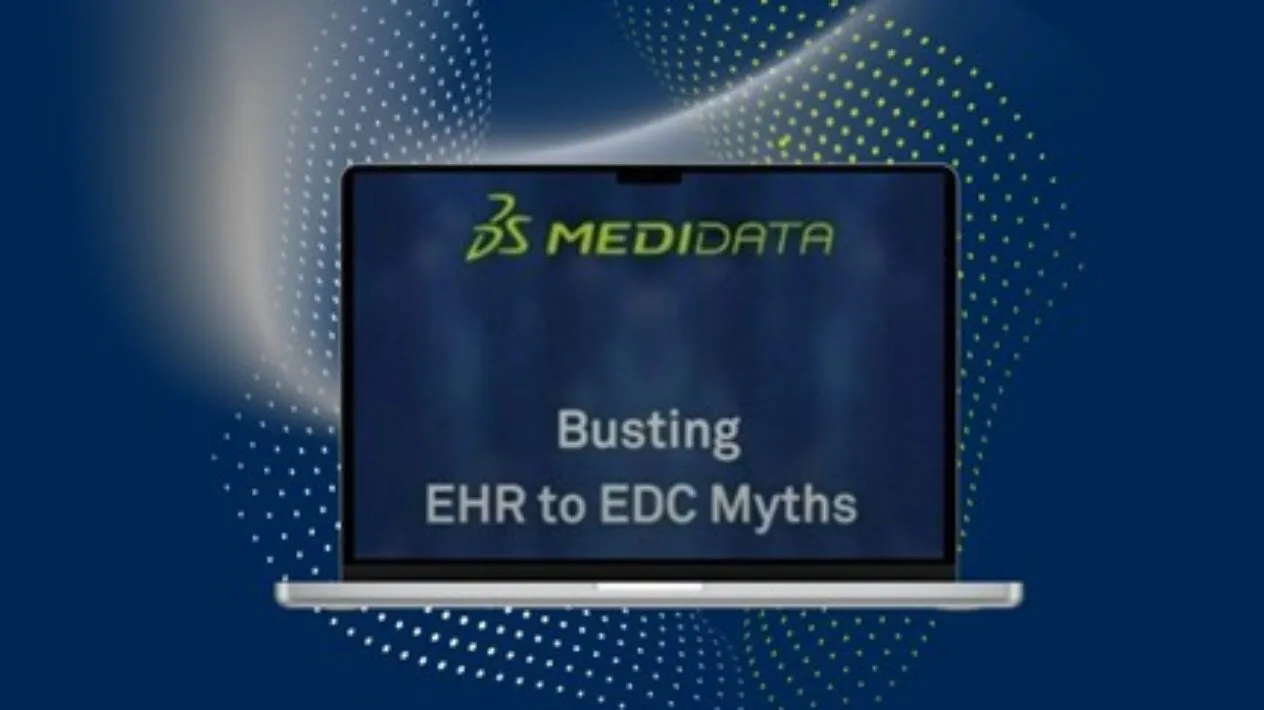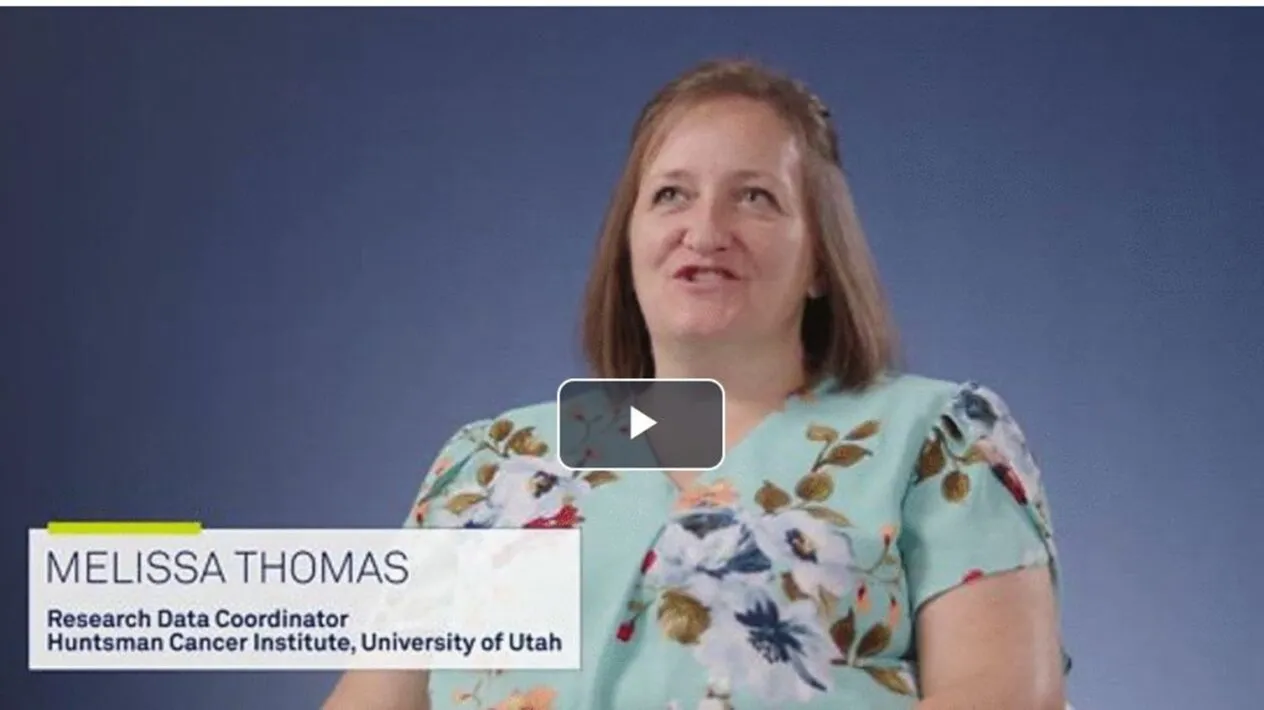Streamline Data Entry with EHR-to-EDC Software
Rave Companion reduces clinical trial data entry efforts for sites by making it simpler and faster to get source data from any system (e.g., EHR – electronic health record) or document (e.g., lab values in a spreadsheet) into Rave EDC. Rave Companion dramatically reduces the time trial sites spend keying in data and resolving queries so they can spend more time with their patients. And it enables sponsors and CROs to get higher quality data, faster.
Unlike EHR-to-EDC integration approaches that require point-to-point connections and complex mapping between systems, Rave Companion is much simpler and faster to implement, making it very scalable, and it’s not limited to EHR data.
EHR to EDC Myth Busters
See how the myths are busted in under 90 seconds
Benefits of Rave Companion

Get Cleaner Clinical Trial Data, Faster
Rave Companion reduces manual data entry, resulting in fewer errors. Fewer errors means fewer queries need to be raised by your CRAs and Data Managers and resolved by your sites.

Reduce Data Monitoring Efforts
Rave Companion (via Medidata Health Record Connect) presents patient health record information to the site user, from which they can select to populate fields in the case report form and subsequently review and submit the data to Rave EDC. Because the data is electronically sourced, sponsors/CROs can reduce the need for source data verification (SDV).

“Rave Companion has been really helpful in reducing my time and frustration with data entry. It’s easy to use and always on top when I need it. It was simple to get started, and it helps me focus less on the manual burden of data entry and more on delivering great clinical research.”
– Melanie Curole, Sr. Research Coordinator, Velocity Clinical Research

“I’ve been using [Medidata] Health Record Connect for a few months now. It’s just such an exciting new feature that Medidata has, as far as being able to take medical records and put them into Medidata [Rave EDC] for accuracy and speed purposes. I’ve really loved just being able to click, and then my records are in Medidata. It’s helpful, it’s fast, and saves time. I’ve been doing this for 12 years, so just the fact I can do it very quickly, it’s just life-changing.”
– Melissa Thomas, Research Data Coordinator, Huntsman Cancer Institute, University of Utah
Key Features of Rave Companion

Populate with EHR Data
Rave Companion presents structured EHR data (using Medidata Health Record Connect) to assist sites in quickly finding and selecting data for case report forms. Rave Companion further accelerates data entry by auto-populating multiple fields with values from the same data range. The site user can then review the completed form before submitting it to Rave EDC.

Always Stay ‘In Sync’
There’s no separate login to use Rave Companion. When a Rave EDC form is opened, Companion automatically pops up a compact replica of the form and stays ‘in sync’ with the EDC form. The Companion form is free-floating, meaning users can have it alongside any source application or document. There’s no need to switch back and forth between windows. Data entered or captured into Companion is automatically reflected in Rave EDC, where the site can review it before it’s saved.

Capture Any Source Data
With Rave Companion, any site can simply point-and-click or drag-and-click to capture data from any source system (e.g., EHR, CTMS, eSource) or document (e.g., lab values in a spreadsheet).

Scale to All Your Sites and Studies
Rave Companion is available to all sites and studies using Rave EDC. Its engine to access EHR data, Medidata Health Record Connect, is connected to the patient health records of over 90% of the top clinical research sites and thousands more in the US.
Related Solutions
Learn More

Solving the EHR to EDC Challenge – A Scalable-First Approach
We all know about the data entry or re-entry burden our clinical trials place on our sites. Much of that data may already exist in the EHR (electronic health record) system. This white paper explores the importance of solving the EHR to EDC data re-entry challenge; why we’ve struggled to solve the problem at scale; how regulatory and technology tailwinds make a scalable solution possible; and introduces Medidata’s solution, Medidata Health Record Connect and Rave Companion.
Solving the EHR to EDC Challenge
Recently, Medidata participated in the Clinical Leader Expo to showcasing data re-entry into EDC simpler and easier for clinical trial sites is crucial, why a scalable solution has been so difficult to achieve, and Medidata’s approach to solving this problem and its benefits for sites, patients, and sponsors/CROs.

SCRS Talks with Dan Braga: EHR Data into EDC: Making it Simpler for Sites
In this episode of the SCRS (Society for Clinical Research Sites) Talks podcast, we explore the transition from EHR (Electronic Health Records) to EDC (Electronic Data Capture) and its implications for healthcare professionals and patients alike. Dan Braga, Vice President of Product Management and Digital Health Solutions at Medidata Solutions, shares how patients, healthcare providers, researchers, and the healthcare industry as a whole gain from the seamless integration of these technologies. Learn about the roadblocks faced by the industry and why this groundbreaking transformation has taken time to reach its full potential.

Myth Busting: EHR to EDC
Moving data from Electronic Health Records (EHR) to Electronic Data Capture (EDC) systems in clinical trials involves several misconceptions that can complicate the process.
Watch how an EHR to EDC interoperability engine like Medidata Health Record Connect and Rave Companion work together ensuring clinical trial sites can easily and quickly populate Rave EDC forms with source data from other systems (e.g., EHR, CTMS, eSource) and documents (e.g., lab values in a spreadsheet).




